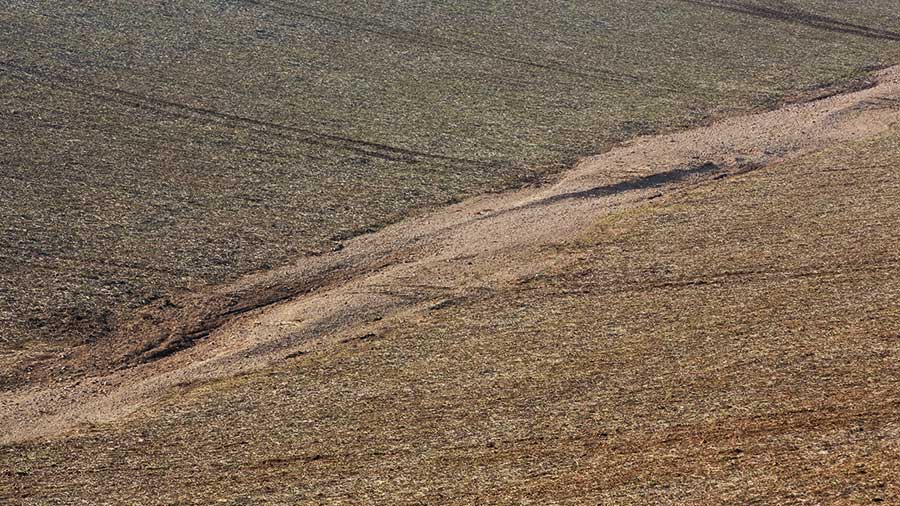Phosphorus loss in arable soils – main culprits identified
 © Tim Scrivener
© Tim Scrivener A study led by researchers from Scotland’s Rural College (SRUC) has found surface run-off and erosion are the principle sources of phosphorus loss in arable soils.
Loss of phosphorus via drains was a key pathway, particularly in improved grasslands on soils with artificial drainage.
Soil management practices and knowledge exchange will therefore help farmers prevent the loss of valuable soil nutrients.
See also: Video: Sugar beet drilling success with near-perfect weather
The study
The study reviewed the current state of knowledge about various transport mechanisms that release nitrogen and phosphorus into the water environment, funded by the Centre of Expertise for Waters (Crew) in partnership with the James Hutton Institute.
These mechanisms included surface run-off and soil erosion, which is exacerbated by soil compaction and structural degradation.
The role of tramlines used for agricultural machinery, leaching via drain-flow and pollutant hotspots were also investigated.
Focusing on Scotland, researchers assessed the scale and extent of each of these mechanisms, preventative measures and solutions to minimise pollutant losses, and the associated costs and impacts on water quality.
They also identified key knowledge gaps for future research, including the need to quantify diffuse pollution from “hotspots” within Scottish catchments and understand the impacts of preventative measures and solutions on water quality.
Valuing soils
Lead researcher Joanna Cloy said: “Improvement in water quality is important for society in general.
“However, the agricultural industry will also benefit from preventing loss of valuable soils and nutrients from their land, as well as improvements in soil health.
“The report outlines options for mitigating soil erosion and nutrient losses and the costs associated with different options.
For example, good soil nutrient management, such as the use of a fertiliser plan linked to soil sampling for nutrient status and soil pH, is a simple and cost-effective measure for minimising pollutant losses.”
Knowledge-transfer products, including a podcast and video for farmers, technical video and information sheets, have also been produced to communicate key messages about good soil management practices to farmers and landowners.
This work builds on the success of the Valuing your soils guidance for farmers, which was also funded by Crew.

